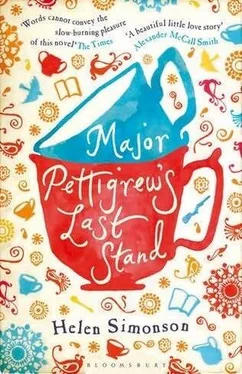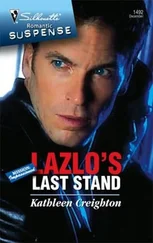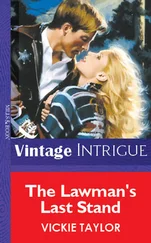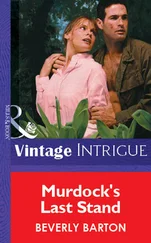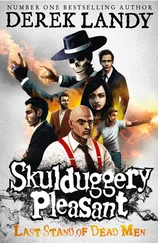“It would be entirely rude to ‘get rid’ of him,” said the Major. “He has accepted my invitation-an invitation I might not have made had I known you were coming down this weekend.”
“I did say we’d be down to visit soon,” said Roger. “I told you at the cottage.”
“Alas, if I planned my weekends around the hope that you would carry through on a promise to visit, I would be a lonely old man sitting amid a growing tower of clean bed linen and uneaten cake,” said the Major. “At least Abdul Wahid showed up when invited.”
“Look, I’m sure he’s a perfectly nice chap, but you can’t be too careful at your age,” said Roger. He stopped and looked around as if to detect eavesdroppers. “There have been many cases of elderly people taken in by scam artists.”
“What do you mean, ‘elderly people’?”
“You have to be especially careful about foreigners.”
“Would that apply equally to Americans?” asked the Major. “Because I spot one of them now.” Sandy was standing in the doorway. She appeared to be examining the long curtains and the Major wished that the pattern of poppies had not faded to rust all along the edges.
“Don’t be ridiculous,” said Roger. “Americans are just like us.”
As his son greeted Sandy with a kiss on the lips and an arm around the waist, the Major was left to gape at such a peremptory dismissal of any distinction of national character between Great Britain and the giant striving nation across the Atlantic. The Major found much to admire in America but also felt that the nation was still in its infancy, its birth predating Queen Victoria’s reign by a mere sixty years or so. Generous to a fault-he still remembered the tins of chocolate powder and waxy crayons handed out in his school even several years after the war-America wielded her huge power in the world with a brash confidence that reminded him of a toddler who has got hold of a hammer.
He was prepared to admit that he might be prejudiced, but what was one supposed to think of a country where history was either preserved in theme parks by employees wearing mob caps and long skirts over their sneakers, or was torn down-taken apart for the wide-plank lumber?
“Are you all right, darling?” asked Roger. “Turns out Abdul is here at my father’s invitation.”
“Of course he is,” said Sandy. She turned to the Major. “Ernest, you have a lovely home.” She held out her long hand and the Major took it, noting that her nails were now pink with broad white tips. It took him a moment to realize that they had been painted to look like fingernails, and he sighed over the extraordinary range of female vanities. His wife, Nancy, had had lovely oval nails, like filbert nuts, and had never done anything more than buff them with a small manicure tool. She had kept them short, the better to thrust them into the garden soil or to play the piano.
“Thank you,” said the Major.
“You can almost smell the centuries,” said Sandy, who was perfectly dressed for a literary version of the countryside, or perhaps an afternoon in Tunbridge Wells. She wore high-heeled brown shoes, pale, well-pressed slacks, a shirt with autumn leaves printed on it, and a cashmere sweater tied around her shoulders. She did not look ready to climb over a stile and walk through soggy sheep fields to the pub for lunch. A happy maliciousness prompted the Major to suggest just that immediately.
“Let’s celebrate the lovely surprise of your visit, shall we?” he said. “I thought we’d walk down for lunch at the Royal Oak.”
“Actually we brought lunch with us,” said Roger. “Picked up supplies at this great new place in Putney. Everything is flown in from France by overnight mail.”
“I hope you like truffle dust.” Sandy laughed. “Roger had them powder everything but the madeleines.”
“Perhaps you’d like to invite that Abdul chap to join us, by way of apology,” added Roger, as if it were the Major who had created an offense.
“It’s not polite to call him Abdul. It means servant,” said the Major. “Formally, you should use the entire Abdul Wahid. It means Servant of God.”
“Touchy about it, is he?” said Roger. “And his aunt would be Mrs. What’s-Her-Name from the village shop? The one you brought to the cottage to freak out Mrs. Augerspier?”
“Your Mrs. Augerspier is an objectionable woman-”
“That goes without saying, Dad.”
“Just because it goes without saying doesn’t mean one shouldn’t speak up, you know. Or at least refuse to do business with such a person.”
“There’s no point in being confrontational and losing out on something lucrative, is there?” asked Roger. “I mean, it is much more satisfying to beat them by getting the better end of the bargain.”
“On what philosophical basis does that idea rest?” asked the Major. Roger gave a vague wave of the hand and the Major saw him roll his eyes for Sandy’s benefit.
“Oh, it’s simple pragmatism, Dad. It’s called the real world. If we refused to do business with the morally questionable, the deal volume would drop in half and the good guys like us would end up poor. Then where would we all be?”
“On a nice dry spit of land known as the moral high ground?” suggested the Major.
Roger and Sandy went to fetch their hamper and as the Major tried not to think of truffles, which he had always avoided because they stank like sweaty groins, Abdul Wahid came out of the house. As usual he was carrying a couple of dusty religious texts tucked tightly under his armpit partly and was wearing the dour frown which the Major now understood was the result of excessive thinking rather than mere unpleasantness. The Major wished young men wouldn’t think so much. It always seemed to result in absurd revolutionary movements or, as in the case of several of his former pupils, the production of very bad poetry.
“Your son has come to stay,” said Abdul Wahid. “I should leave your home.”
“Oh, no, no,” said the Major, who was growing used to Abdul Wahid’s abrupt style of speaking and no longer found it offensive. “There is no need for you to rush off. I told you, the room is yours as long as you want.”
“He has brought his fiancée with him,” said Abdul Wahid. “I must congratulate you. She is very beautiful.”
“Yes, but on the other hand, she’s an American. There’s surely no reason for you to leave.” He thought it quite ridiculous that this young man should careen away from every unmarried woman he met.
“You will need the guest room,” said Abdul Wahid. “Your son was very clear that they will be staying with you for several weekends, until their cottage is made habitable.”
“Ah, will they?” said the Major. He could think of no immediate response. He doubted that the spare room would be required in this case, but he realized that this information would only hasten Abdul Wahid’s departure while placing himself in the awkward position of having to make direct reference to his son’s sleeping arrangements.
“I should return to the shop, and Amina and George should go back to her auntie in town,” said Abdul Wahid in a firm voice. “This whole idea that we can be together again is just foolish.”
“Many a fool has later been labeled a genius,” said the Major. “There is no hurry to make decisions, is there? Your aunt seems to think the family will come around. And she dotes on little George.”
“My aunt has discussed the matter with you?” asked Abdul Wahid.
“I knew your uncle,” said the Major, but he felt the lie in this and could not look at Abdul Wahid.
“My aunt has always defied the normal and necessary limits of real life. She sees it as a duty, almost,” he said. “But I see only indulgence and if I do not put an end to this confusion, I fear my aunt will break her heart this time.”
Читать дальше
